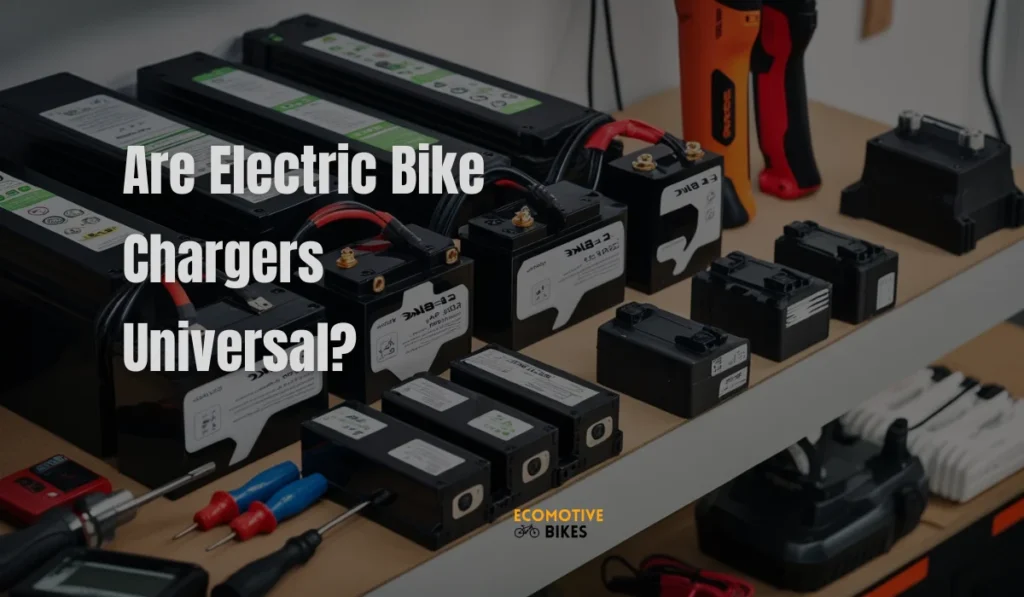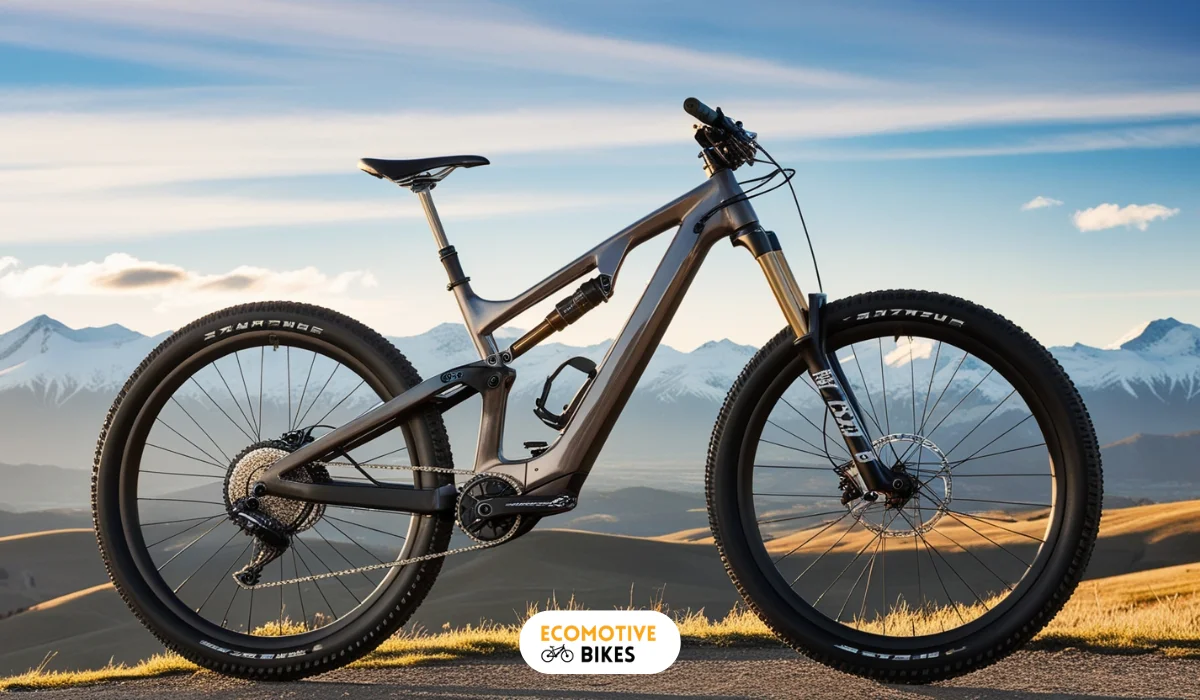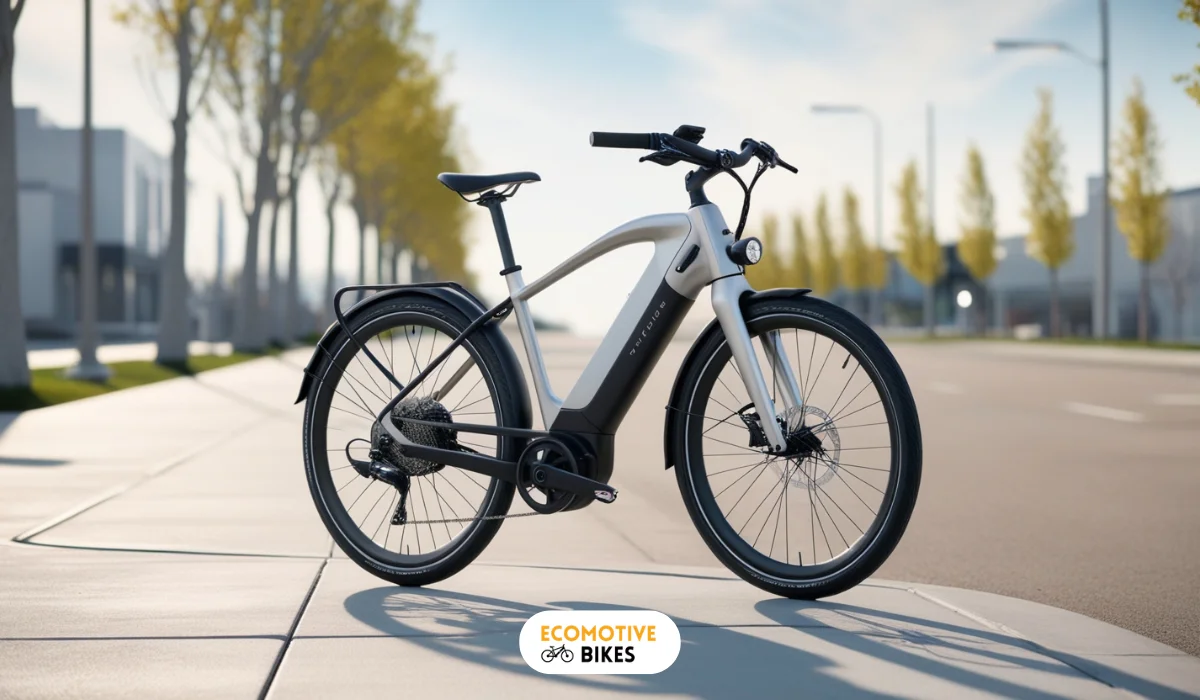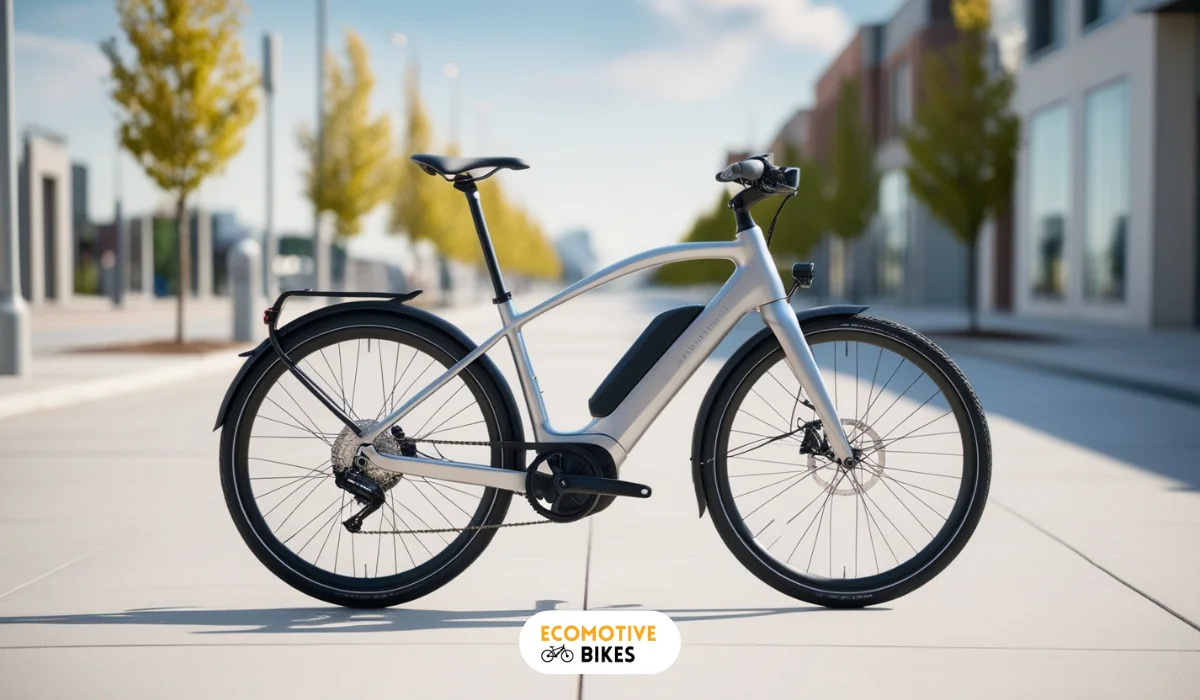Are Electric Bike Chargers Universal? Things You Need to Know About Compatibility
Are electric bike chargers universal? Explore compatibility factors like voltage, connectors, and battery types to ensure safe and efficient charging for your e-bike.
Table of Contents
Related Articles:
You may be wondering if electric bike chargers are universal. Let’s probe into this topic to provide you with a clear understanding. Electric bikes have surged in popularity, but with this surge comes the need to address the compatibility of chargers.
In this article, we will explore the intricacies of electric bike chargers to determine if they are indeed universal.

Are electric bike chargers the same?
Exploring charger specifications
One important thing to understand about electric bike chargers is that they are not universal. Every e-bike manufacturer designs their bikes with different specifications, including the charger. This means that each e-bike requires a specific charger that is tailored to its battery’s charging capacity and design.
Voltage, amperage, and connector variability
With varying voltage, amperage, and connector types, electric bike chargers are not interchangeable between different e-bike models. The voltage of the charger must match or be compatible with the ebike’s battery voltage to ensure effective charging.
The amperage of the charger plays a crucial role in determining the speed and efficiency of the charging process. Furthermore, the connector type of the charger must align with the connector on the ebike for a successful charging connection.
Bike manufacturers design their chargers with specific voltage and amperage ratings to optimize the battery charging process and ensure compatibility. Swapping chargers between ebikes can lead to improper charging, reduced battery lifespan, and potential damage to the e-bike components.
Use the designated charger provided by the manufacturer for each electric bike, as they are not universal in nature.
Related: Are ebike chargers interchangable?
Which e-bike charger should you choose?
Matching charger specifications to your battery
Which ebike charger should you choose for your electric bike? It’s crucial to match the charger specifications to your battery for optimal performance. With e-bikes varying in charging capacity and battery types, using the correct charger is vital to ensure efficient and safe charging.
Importance of manufacturer recommendations
One important factor to consider when selecting an e-bike charger is following the manufacturer’s recommendations. Each e-bike brand has its own unique design and battery requirements, meaning that using a charger not specifically designed for your e-bike could result in performance issues or damage to your battery.
With different voltages and connector types, it’s best to stick with the charger provided by your e-bike manufacturer.
Are all e-bike chargers the same?
Identifying key differences among chargers
For those wondering if all ebike chargers are the same, the answer is a definitive no. Each electric bike manufacturer designs their chargers specifically to cater to the unique requirements of their bikes.
This means that different e-bikes have different charging capacities, sizes, and battery types, all of which necessitate the use of a specific charger.
Related: Are ebike batteries dangerous?
Universal vs. brand-specific chargers
To investigate deeper into the topic, it’s crucial to understand the distinction between universal chargers and brand-specific chargers for electric bikes. Ebike chargers are not universal, as each brand has its patented designs and unique specifications.
Attempting to interchange chargers between different e-bike models can lead to adverse effects on battery health and overall performance.
It is vital to realize that while universal chargers may seem convenient, the compatibility and efficiency of brand-specific chargers cannot be underestimated.
Manufacturers design their chargers to maximize the charging capacity and lifespan of the specific battery used in their e-bike models, making brand-specific chargers the optimal choice for ensuring your bike’s longevity and performance.
Now as you know chargers are not universal, however, you can buy a universal voltage charger. See the below video:
How do I choose an e-bike charger?
Evaluating charger quality and safety features
Unlike other electronic devices, electric bike chargers are not universal. When choosing an ebike charger, it is crucial to evaluate the quality and safety features of the charger. Each ebike manufacturer produces chargers specifically designed for their bikes, taking into account the unique specifications and requirements of the battery. Ensuring that the charger is of high quality and equipped with safety features will help maintain the health and longevity of your ebike’s battery.
Considering charging speed and convenience
On the other hand, considering the charging speed and convenience is also crucial when selecting an ebike charger.
With the different voltage options ranging from 36 volts to 42 volts, choosing a charger that matches the voltage requirements of your e-bike is key to efficient charging.
It is recommended to opt for a charger that complements your e-bike’s voltage for optimal performance and longevity of the battery.
Are e-bike battery connectors standard?
Common connector types in the market
Not all e-bike battery connectors are standard, as there are different types available in the market based on the brand and model of the electric bike. It is important to understand the various connector types to ensure compatibility between the charger and the e-bike battery.
Any mismatch in connectors could lead to charging issues and potentially damage the battery.
| Connector Type | Description |
|---|---|
| Compact connector for smaller e-bikes | Used in many commercial e-bikes |
| XLR Connector | Compact and reliable connector option |
| DC Coaxial Connector | High-power connector for larger e-bikes |
| XT-90 Connector | Compact connector for smaller e-bikes |
| JST Connector | Compact connector for smaller ebikes |
The role of connectors in charger compatibility
Ebike battery connectors play a crucial role in ensuring charger compatibility with the electric bike. Plus, matching the right connector type is important for efficient and safe charging. Using the correct connector eliminates the risk of damage to the battery and ensures optimal performance of the e-bike.
Can I use a 42V charger on a 36V battery?
Understanding voltage requirements for safe charging
To address the question of whether a 42V charger can be used on a 36V battery, it is crucial to understand the importance of matching voltage requirements for safe charging. All electric bike chargers are not universal and vary depending on the bike’s specifications, including the battery voltage.
Risks and potential damages of incompatible charging
On the other hand, using a charger with a higher voltage on a lower voltage battery can pose risks and potential damages to the battery and the electric bike itself. Charger compatibility is vital to ensure efficient and safe charging, as mismatched voltages can affect the battery’s lifespan and performance.
Chargers and batteries are designed to work in harmony, with specific voltage requirements to optimize charging without causing harm. Using a 42V charger on a 36V battery can result in overcharging and overheating, leading to decreased battery life and potential safety hazards. Always use the correct charger specified for your electric bike to avoid any issues related to incompatible charging.
Can I use a 48V charger on a 36-Volt battery?
Voltage discrepancy and battery health
Discrepancy in voltage compatibility between chargers and batteries can significantly impact the health and longevity of your electric bike’s battery. Attempting to use a 48V charger on a 36V battery can potentially lead to suboptimal charging, which may compromise the overall performance and lifespan of the battery.
Evaluating if a higher voltage charger can be safe
While it may be tempting to use a higher voltage charger for a lower voltage battery, it is important to consider the potential risks involved in such practices. Using a 48V charger on a 36V battery can result in improper charging, potentially damaging the battery and reducing its overall lifespan.
It is always recommended to use the charger specifically designed for your electric bike to ensure optimal performance and longevity of the battery.
The compatibility between the charger and the battery voltage is crucial in maintaining the health of your electric bike’s battery over time.
Avoiding voltage discrepancies and following manufacturer guidelines for charging can help preserve the battery and enhance the overall lifespan of your electric bike.
Can you overcharge an e-bike battery?
The mechanics of battery overcharging
Despite the convenience of electric bike chargers, it is vital to understand the implications of overcharging an ebike battery. Overcharging occurs when a battery is charged beyond its capacity, leading to increased temperatures and potential damage.
This can significantly reduce the lifespan and performance of the battery, ultimately impacting the overall efficiency of the electric bike.
How modern chargers prevent overcharging
On the other hand, modern chargers come equipped with advanced technology to prevent overcharging. These chargers are designed to monitor the battery’s state and adjust the charging process accordingly to avoid overcharging.
With features such as smart charging algorithms and automatic shut-off mechanisms, modern chargers ensure that the battery is charged optimally and safely.
Overcharging an ebike battery can have detrimental effects on its lifespan and performance. Therefore, it is crucial to utilize modern chargers that incorporate smart charging technologies to prevent any potential damage to the battery.
Can you charge a 48V battery with a 12V charger?
Inadequate voltage and ineffective charging
Charging a 48V battery with a 12V charger may lead to inadequate voltage supply, resulting in ineffective charging. While it is possible to use a lower voltage charger, the charging process will be significantly slower compared to using a charger with the correct voltage output. This can potentially impact the performance and longevity of the battery over time.
Dangers of using underpowered chargers
Ineffective charging due to using underpowered chargers can pose risks to the battery of your electric bike. Plus, using a 12V charger for a 48V battery could lead to improper charging which may damage the battery and reduce its overall lifespan. It’s necessary to always use the appropriate charger to ensure optimal performance and longevity of your electric bike battery.
Should I charge my e-bike to 100%?
Battery lifecycle and optimal charging practices
For optimal battery lifespan, it is recommended to adhere to certain charging practices when it comes to your electric bike. Fully charging your e-bike to 100% is acceptable if planning a long ride, but it is advised to keep the battery within 80-85% charged after regular rides to prolong its lifespan. Additionally, using the charger provided by the manufacturer and avoiding overcharging are vital steps to ensure your ebike battery performs at its best.
The debate over partial vs. full charges
Ebike enthusiasts often debate over whether partial charges or full charges are more beneficial for the battery. The truth is that both practices have their advantages and drawbacks. While charging to 100% may be necessary for longer trips, frequent full charges can impact the battery’s longevity.
On the other hand, partial charges tend to prolong battery life but may limit the overall range of your e-bike. It ultimately boils down to finding a balance that suits your riding habits and needs.
How do I make my battery last longer?
Charging techniques to extend battery life
Keep your ebike battery in top condition with proper charging techniques. Any ebike user should aim to charge their battery fully before the first ride and avoid overcharging to prevent overheating and reduce battery life. Opt for using the charger that comes with your ebike for optimal performance.
Storage and maintenance tips for e-bike batteries
Make sure to follow storage and maintenance tips to maximize the lifespan of your ebike battery. Store your battery in a safe and dry place, free from extreme temperatures and weather conditions. Avoid overcharging and protect your battery from harsh environments to ensure longevity. This will help maintain the battery health and performance over time.
- Store your battery in a cool, dry place.
- Avoid exposing your battery to extreme temperatures.
- Charge your battery regularly to keep it in optimal condition.
It is necessary to follow these storage and maintenance tips to keep your ebike battery operating efficiently and lasting longer. By implementing these practices, you can enhance the overall performance and longevity of your ebike battery.
How long does an electric bike last?
Assessing the longevity of e-bike components
The longevity of electric bikes can vary depending on various factors such as usage, maintenance, and the quality of components. On average, an electric bike can last up to 10 years with proper care and maintenance.
Regular servicing of components, keeping the battery charged correctly, and protecting the bike from harsh weather conditions can significantly extend its lifespan. It’s important to assess the condition of key components regularly to ensure optimal performance.
Battery lifespan and replacement considerations
To assess the battery lifespan of an electric bike, it’s crucial to consider factors such as charging habits, temperature exposure, and overall usage. On average, an electric bike battery can last around 2-5 years depending on these factors.
When considering battery replacement, it’s vital to choose a compatible battery with the correct voltage for your bike. Considerations should also be made for the type of battery, such as lithium-ion, as different batteries have varying lifespans and charging requirements.
The future of e-bike charging technology
Innovations in universal charging solutions
Charging technology for electric bikes is constantly evolving, with much advancement aimed at creating universal solutions. Manufacturers are working towards developing chargers that can cater to a wide range of e-bike models, making it more convenient for users to charge their bikes without the need for multiple chargers. This innovation is crucial in simplifying the charging process and enhancing the overall user experience.
The impact of advancements on e-bike charging
An important aspect of the advancements in ebike charging technology is the impact it has on the performance and longevity of ebike batteries. With the introduction of more efficient and user-friendly chargers, ebike owners can now ensure optimal charging levels for their batteries, leading to improved battery life and overall performance. This ultimately results in a more sustainable and reliable riding experience for users.
Final Words: Are electric bike chargers universal?
So, in conclusion, electric bike chargers are not universal. Each ebike manufacturer designs their chargers specifically for their bikes, taking into account factors such as battery type, voltage, and charging capacity.
Use the charger provided by your ebike manufacturer to ensure optimal performance and battery life. Swapping chargers can negatively impact your ebike’s health and may result in damage.
Remember to follow the manufacturer’s guidelines and maintenance tips to prolong the life of your electric bike and its components. Stay informed and ride safely!





